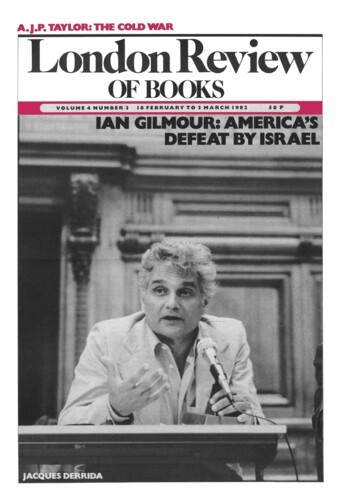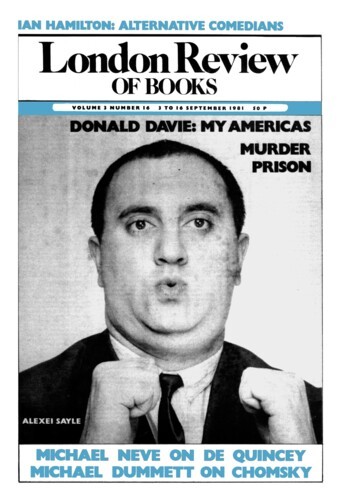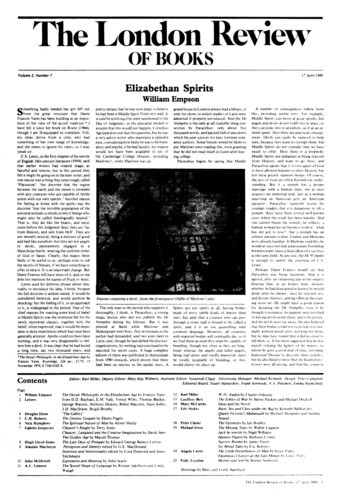An American Romance
Edward Mendelson, 18 February 1982
Old Glory – the book written by Jonathan Raban – is an altogether different book from the Old Glory that was praised in the reviews, but it is no less wonderful for that. The book the reviewers wrote about does not exist at all, except as the ghost of an intention. This phantasmal Old Glory is the book which Raban originally planned to write, and which he expected would be little more than an elegant travel diary: the record of a passive drifting journey down the Mississippi in the track of Huckleberry Finn. As he reports in the first chapter of the published version, he dreamed, long before he set out, that



